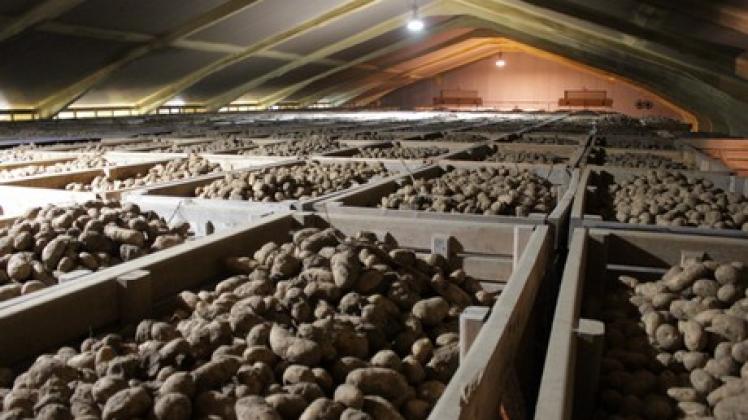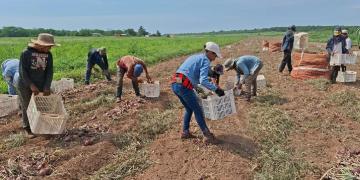Gran Bretaña: UK research partnership on potato diseases
A new research partnership has been formed in the UK between the Two Blades Foundation (2Blades), The Sainsbury Laboratory, and J. R. Simplot Company.

They aim to develop potato varieties with increased resistance to oomycete and bacterial diseases.
Late blight, the oomycete disease that resulted in the Irish Potato Famine, is still a significant cause of yield loss in potato production today. The late blight pathogen, Phytophthora infestans, can also cause tuber rot.
To identify long lasting resistance to late blight, scientists and breeders have turned to wild relatives of potato to identify resistance genes and introduce these into agronomic varieties. The current partnership aims to explore new sources of late blight resistance identified in the laboratory of Prof. Jonathan Jones at The Sainsbury Laboratory in Norwich, U.K.
Simplot has recently received USDA and FDA clearance for its second generation Innate® potatoes with late blight disease resistance for common North American strains. The partnership with 2Blades and The Sainsbury Laboratory will enable Simplot to add additional genes from wild potato varieties to combat global strains in future Innate generations.
Potatoes are also susceptible to bacterial diseases, such as bacterial wilt and soft rot that can affect plants in the field and can lead to significant losses for stored potatoes. The new partnership will test the ability of the EFR gene, a broad-spectrum immune receptor that recognizes bacteria, to protect potatoes. The EFR gene is studied in the laboratory of Prof. Cyril Zipfel, Head of The Sainsbury Laboratory. EFR has already been demonstrated to confer resistance against bacterial diseases in tomato, tobacco, wheat, and other crops.
Fuente: http://www.freshplaza.com/article/154818/UK-research-partnership-on-potato-diseases




